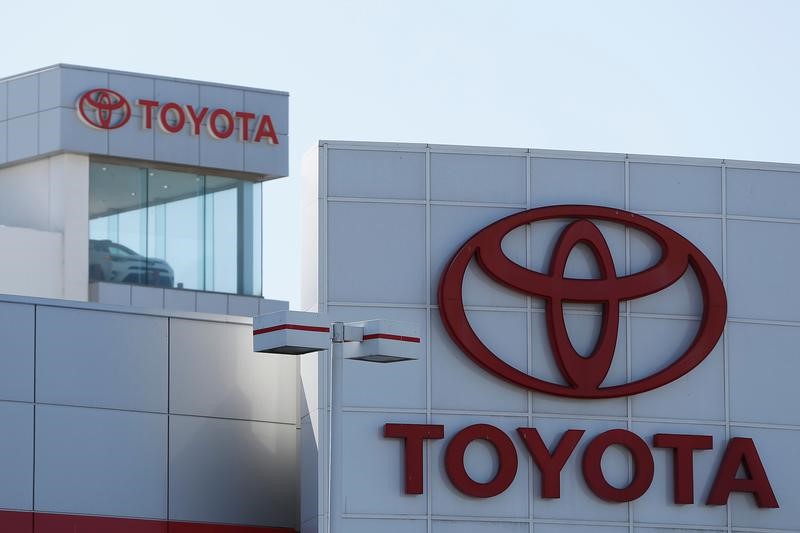GUANGZHOU/BEIJING (Reuters) - Toyota Motor (T:7203) said it would consider selling locally designed and manufactured all-electric vehicle models in China, as it looks to expand its EV lineup and comply with Beijing's upcoming new-energy vehicle (NEV) production and sales quotas.
China has set strict quotas for electric and plug-in hybrid cars that come into effect from 2019. It has an ambitious target of 2 million NEV sales by 2020 and has signaled longer-term it will phase out the sale of conventional petrol-engine cars.
This seismic shift towards NEVs has prompted a flurry of electric car deals and new launches as manufacturers worldwide race for a share of the world's largest auto market.
"To respond to expanding demand for EVs, more widely and more comprehensively, we have begun considering the possibility of having our China joint-venture partners provide us with EVs," Hiroji Onishi, Toyota's head of China operations, said at a press briefing at the Guangzhou auto show on Friday.
Foreign car manufacturers are allowed to operate in China by forming joint ventures with Chinese partners. Toyota's joint venture partners in the country are China FAW Group Corp [SASACJ.UL] and Guangzhou Automobile Group.
Apart from the all-electric battery car models developed by its local joint ventures, Toyota also plans to launch an EV model, designed in Japan, in China in 2020.
But the EV engineered in Japan would have to be produced in China to qualify for NEV credits, but it was not immediately clear whether Toyota planned to locally manufacture the EV.
When China's green car quotas take effect in 2019, automakers will need to accumulate credits by producing and selling enough NEVs to hit a threshold equivalent to 10 percent of annual sales. That level would rise to 12 percent for 2020.
Toyota said it was also studying the feasibility of selling hydrogen fuel-cell commercial vehicles in China.
It began testing hydrogen fuel-cell cars in China in late October as part of a study to determine the feasibility of selling its Mirai hydrogen electric passenger car in China.

"We plan to continue to study fuel-cell cars' feasibility in China and have decided expand its scope to include fuel-cell buses," Onishi said.